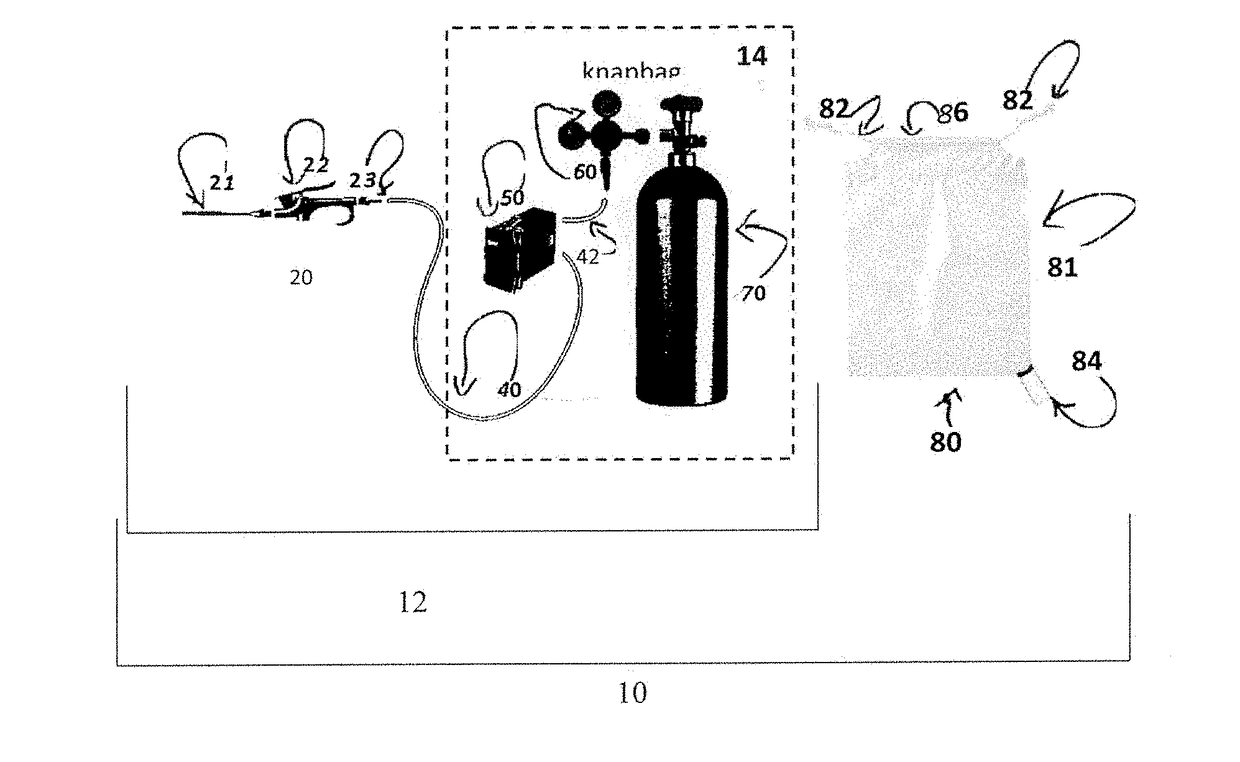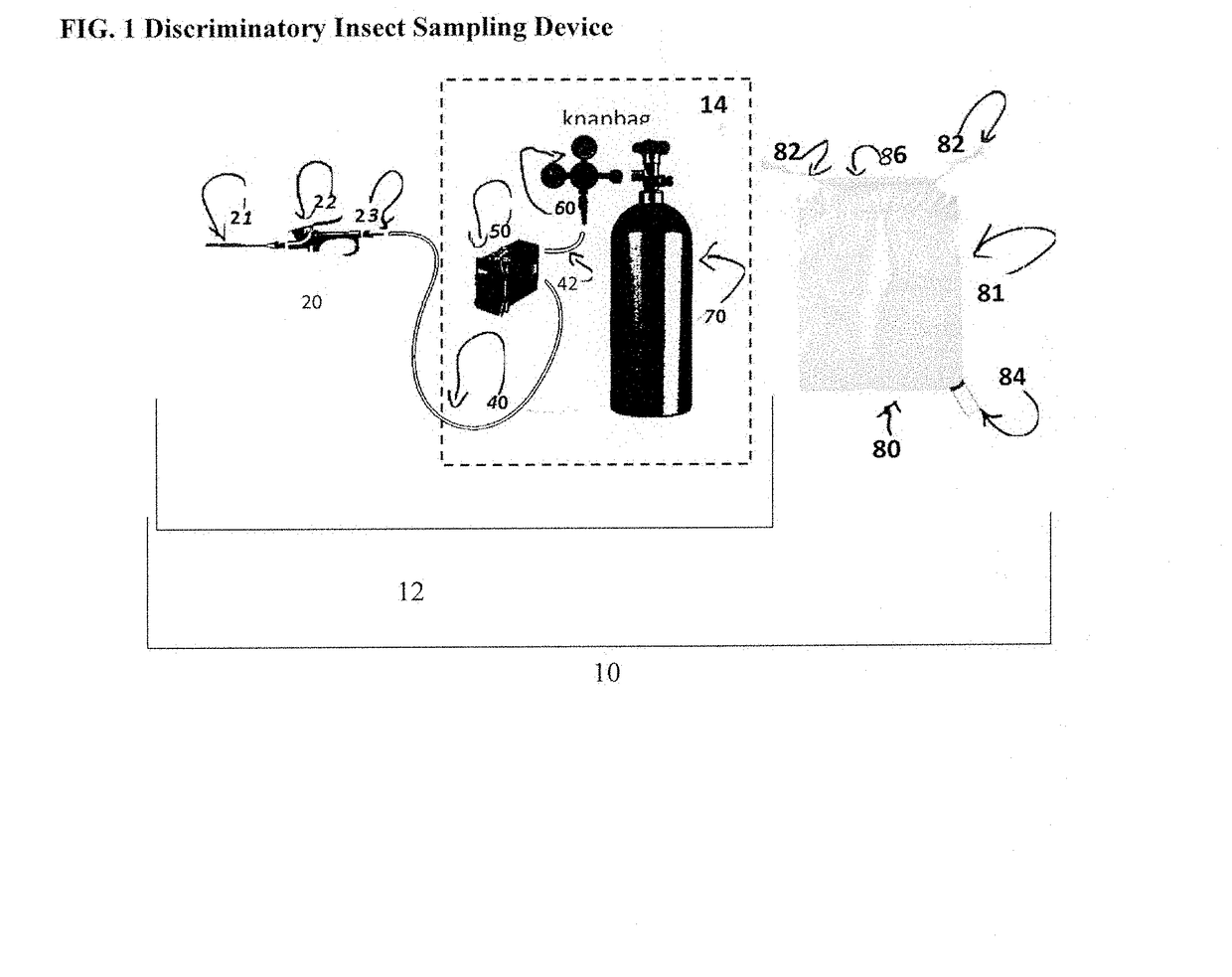Discriminatory insect sampling device and method for use
a sampling device and insect technology, applied in the field of insect sampling devices, can solve the problems of consistent but underestimated forecast of western tarnished plant bug and other pest populations, destructive plant vacuuming, and underestimation of insect populations
- Summary
- Abstract
- Description
- Claims
- Application Information
AI Technical Summary
Benefits of technology
Problems solved by technology
Method used
Image
Examples
Embodiment Construction
[0015]The present invention teaches a Discriminatory Insect Collection Device and a method for use. With reference to FIG. 1, the current invention 10 has two main elements, namely the carbon dioxide dispensing system 12 and the insect collection system 80. The carbon dioxide dispensing system 12 is composed of two elements outside the knapsack 14, namely the nozzle 20 and hose system 40. The nozzle 20 is composed of three elements, namely the extended air nozzle 21, the thumb Lever push valve 22, and the brass barb 23. Nozzle 20 is attached to hose 40. Hose 40 is attached to carbon dioxide dispensing system 12. Carbon dioxide dispensing system 12 is partially contained in a knapsack 14. Carbon dioxide dispensing system 12 contained within the knapsack 14 is composed of four elements, namely the pneumatic mini timer 50, the hose 42, the carbon dioxide flow regulator 60, and the carbon dioxide tank 70. Hose 40 is attached to the pneumatic mini timer 50, which is attached to hose 42, ...
PUM
 Login to View More
Login to View More Abstract
Description
Claims
Application Information
 Login to View More
Login to View More - R&D
- Intellectual Property
- Life Sciences
- Materials
- Tech Scout
- Unparalleled Data Quality
- Higher Quality Content
- 60% Fewer Hallucinations
Browse by: Latest US Patents, China's latest patents, Technical Efficacy Thesaurus, Application Domain, Technology Topic, Popular Technical Reports.
© 2025 PatSnap. All rights reserved.Legal|Privacy policy|Modern Slavery Act Transparency Statement|Sitemap|About US| Contact US: help@patsnap.com


